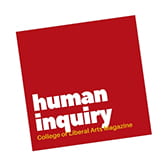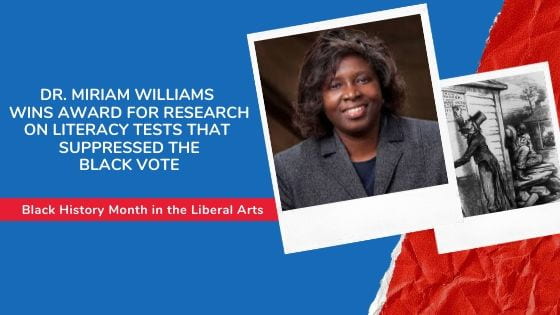Voting interference and voter suppression is nothing new. Learning the history of tactics used to suppress the vote can help motivate us to exercise and protect our right to vote now. Dr. Miriam Williams, professor in the Department of English, and her co-author Dr. Natasha Jones from Michigan State University recently won an award for their research on how literacy tests were used from 1890 to 1965 to disenfranchise black voters in the U.S.
In their article, “Technologies of disenfranchisement: Literacy tests and black voters in the US from 1890 to 1965” published in Technical Communication, the authors conduct a critical rhetorical analysis of the literacy tests that the Southern States required that African American voters take after the Reconstruction Act in 1867. Although the 13th Amendment abolished slavery and the 14th Amendment made slaves official citizens of the U.S., Williams and Jones remind readers that “there were no federal laws that opposed the administration of literacy tests in the South.” Literacy tests were used in combination with grandfather clauses (or inheriting the right to vote if your grandparents did) to target African Americans who had been denied education and whose ancestors were denied the right to vote.
Williams and Jones analyze the Application for Registration, Questionnaire, and Oaths of Alabama from 1965 and find that the form seems objective, but actually uses language and visual elements that obviously deceive and entrap black voters. The authors identified “textual and visual elements that served as intentional and covert violations of the black prospective voter’s expectations in relation to the quantity.” These elements included requesting information to identify and track black voters, including sections where it was unclear how much information was required, and asking for irrelevant information.
The article won the Conference on College Composition and Communication’s 2020 CCCC Technical and Scientific Communication Award in the category of Best Article Reporting Historical Research or Textual Studies in Technical and Scientific Communication. It is a great example of how technology like a test or survey can perpetuate biases and injustice. And it is a reminder to learn lessons from the past and to practice and defend voting rights today.
.

